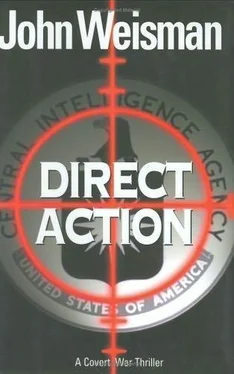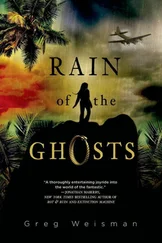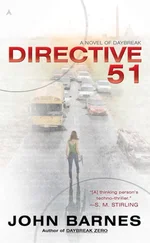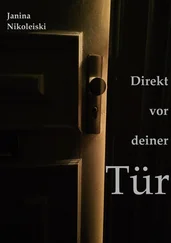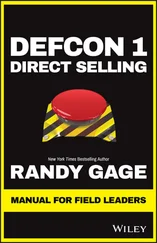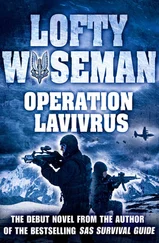1:47:42. Reuven’s mind and body both reacted to his surroundings, but his physical appearance never changed. Combat was mental. That’s what they taught you in the Mat’kal . It required training, discipline, and confidence.
1:47:43. Reuven crossed the narrow street. Scan and breathe. Scan and breathe. That was what the firearms instructors drilled into you day after day on the range. Do not succumb to tunnel vision. Take in oxygen. Keep every instinct keened. Ears open. Nose open. Miss nothing. Become a sponge. Anticipate.
1:47:45. Reuven’s radar sensed movement behind him. Then his ears caught the faint but nonetheless distinct scrape of running shoes against asphalt, moving in quick, potentially violent fashion. The motion in itself was eloquent. It told the Israeli his opposition was armed with a knife or a garrote, not a gun. And then the smells hit him: garlic, tobacco, and sweat-even in the chill, there was sweat.
1:47:46. Reuven feinted right but moved left, rolling over the low hood of a car and dropping into a crouch as a body came hurtling past the spot where his left shoulder had been. He heard the whoosh of the blade as it slashed air.
He caught a glimpse of the man wielding it. Dressed in banlieue hiphop and carrying a big folding knife with a curved blade. An amateur . Only amateurs use knives that big. Maybe. But maybe also a professional-a gangsta paid a hundred euros to make this look like a street robbery.
1:47:48. Reuven tucked the shopping bag tightly under his right arm. He brought the Glock up, parallel to the pavement.
1:47:49. His left hand racked the slide, loading a round into the pistol’s chamber. Simultaneously, Reuven swung the suppressor’s muzzle across his assailant’s sweatshirt-covered chest, almost as if he were swinging a paintbrush, and as the muzzle crossed center mass, he pulled the trigger twice in rapid succession- thwop-thwop .
The target went down. But instead of dying, he groaned loudly, cursed in guttural Arabic, rolled away from Reuven, and tried to pull himself to his feet. He’d never even let go of the big knife.
The son of a whore’s wearing a vest . Reuven shifted the Glock into a two-handed grip, stepped up, and using the car to steady himself, put a carefully aimed third round into the side of the hip-hop’s head.
1:47:52. The hip-hop dropped heavily, splayed out on the sidewalk facedown, thrashing like he’d been jolted with a Taser. He bucked half a dozen times then went still. A puddle of dark blood began to drain from the head wound.
1:47:57. Reuven backed away from the car, breathing through his mouth to make sure he took in a lot of oxygen. He pointed the muzzle of the Glock slightly downward-the stance they called low ready at the range-swinging the weapon left/right, right/left, his eyes searching the darkened street for anomalies. He thought he heard the faint sound of shoe leather on concrete moving away from him, but he couldn’t be absolutely sure.
1:48:03. Reuven looked up and scanned the windows. Thank God it was all quiet. There were no lights; no nosy neighbors. He dropped to his knees and crawled around until he’d retrieved his three 9mm shell casings from the street and shoved them in his pocket. Then he approached the dead hiphop and rolled the corpse with his toe, careful to stay away from the large puddle of blood leaking from the side of the man’s shattered temple. He’d been right: the hip-hop had the look of an Algerian or Moroccan banlieue gangbanger-right down to the jailhouse tattoo on the back of his hand.
1:48:29. The Israeli patted the dead man down. There was a wallet, a pager, and a cell phone. Reuven stuffed them into the shopping bag. Gingerly, he pulled the hip-hop’s sweatshirt up. There were five hundred-euro bills secured in the Velcro straps of the bulletproof vest. He took them, too. The money was folded around a small piece of yellow paper-one of those silly Post-it sticky notes.
Reuven held the paper up and squinted in the darkness. On the Post-it was written Raynouard . The numerals were Arabic-17. The address was Tom’s.
The Israeli started up the street at a dead run, heading for the long flight of stairs. He knew there was an all-night taxi stand near the intersection of rue Lamarck and rue Caulaincourt.
1:47:39A.M. When he heard the single tsk in his ear, Tom slipped out of the doorway, kept close to the building, and made his way slowly up the street. The key was to do everything slowly and evenly. No jerky movement. Nothing that would attract attention. At night, sudden movement normally causes people to shift their eyes-change focus, use peripheral vision. And Tom didn’t want anybody doing that. He wanted his adversaries staring straight at him because that way they were likely to miss him. Of course, if they had night-vision equipment, it wouldn’t matter. But better safe than stupid.
1:47:52. Tom crossed the foot of rue Nicolet. He’d started to ease around the corner onto rue Ramey when he saw headlights coming in his direction. He stopped, stepped back, and retreated into a doorway.
The car-it was a small convertible-continued south on rue Ramey. As soon as its taillights had disappeared, Tom stepped out, made his way to the corner, and turned north. He was about halfway up the block when the intersection of rue Labat came into view. He continued cautiously until he dared to look across the street and saw the van was gone. That struck Tom as strange. Static surveillance units seldom shifted their positions because doing so drew attention to them.
Tom had once spent thirty-eight hours straight on a two-man static surveillance. It had been in Cairo, in the summer. After about twenty-six hours in hundred-plus-degree heat, he’d come down with a horrible case of turista. All the Imodium, of course, was stored safely in the medicine cabinet back at his apartment, and so the last half day had been without question the most uncomfortable twelve hours in his entire life. He didn’t want to think how nasty it had been for his unfortunate partner.
1:48A.M. The mouth of the alley was sealed by a two-and-a-half-meter wall-just over eight feet-topped with an occasional shard of glass. There was no gate. The wall was smooth-there were no dogs’ teeth to help him gain any purchase.
He paused, took a deep breath, then sprang, catching the exposed cap of the brick wall with his fingertips. He pulled himself straight up vertically, as if he were chinning on a bar. In truth, he hadn’t done any rock-climbing since college. He ran, of course, and when he’d been at Langley, he’d occasionally lifted some free weights down in the clandestine personnel gym. But since he’d moved to Paris, his exercise sessions had been sporadic at best-and now he was going to suffer the painful consequences.
But he kept going. When Tom’s nose was level with the top of the wall, he threw his arm up and over, careful not to impale himself on the pieces of broken bottle. Then, inch by inch, Tom struggled until he’d pulled himself over the top of the wall. It was no fun.
Exhausted, he rolled and dropped into the first of the three yards. He was careful to land evenly. He didn’t need a sprained ankle. Not tonight.
1:50. He caught his breath and scanned his surroundings. It was just as Reuven had described: a postage stamp of a yard. A tree, bare in the November chill, stood in the center of the four-by-four-meter plot. Laundry was hung out. Tom picked his way past the rear of the house, trod carefully in the darkness up to the far wall, and jumped tippy-toe like a six-year-old at a candy counter to see if he could make out what was on top. This wall came topped with a single strand of what appeared to be rusty barbed wire. More fun and games. He shook his head and sprang for the lip of the wall.
Читать дальше
